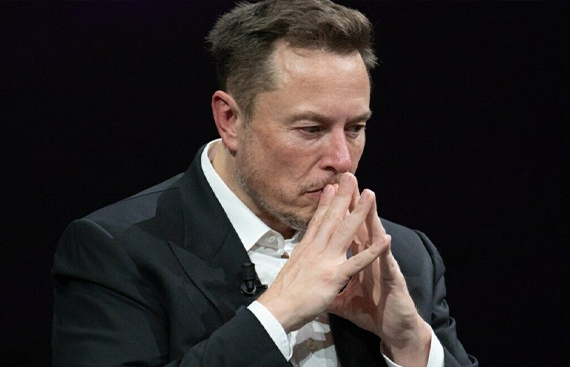Elon Musk's Bid to Pause OpenAI-G42 Deal in Middle East Fails
By
siliconindia | Thursday, 29 May 2025, 10:40 Hrs

- Elon Musk tried to halt OpenAI’s AI infrastructure deal in the UAE unless xAI was included, but the deal went ahead without him.
- The initiative, backed by G42, OpenAI, Oracle, SoftBank, and others, will build one of the world’s largest AI hubs in Abu Dhabi.
- Musk’s objections may stem from his long-standing rivalry with OpenAI CEO Sam Altman, dating back to Musk's 2018 exit from the company.
Elon Musk reportedly attempted to halt OpenAI’s recent high-profile artificial intelligence deal in the Middle East unless his own AI venture, xAI, was included in the collaboration but his efforts failed.
The agreement in question, announced last week, involves OpenAI and several major U.S. tech companies partnering with G42, an Emirati artificial intelligence firm, to develop a massive data center complex in Abu Dhabi. This project is a key component of Stargate UAE, part of the broader Project Stargate, which was unveiled in January this year. Once completed, the facility is expected to be among the largest AI computing hubs in the world, powered by advanced chips from companies such as Nvidia and operated through infrastructure provided by Oracle, Cisco, and SoftBank.
According to a report by The Wall Street Journal, Musk became aware of the OpenAI-G42 deal shortly before former U.S. President Donald Trump’s recent tour of the Gulf region. Upon learning that OpenAI CEO Sam Altman would be accompanying Trump and that final discussions were underway with the UAE, Musk reportedly reacted strongly. In a phone call with G42 executives, including Sheikh Tahnoon bin Zayed UAE’s national security adviser and brother to the president Musk allegedly insisted that xAI be given a place in the project. He warned that the deal might not receive U.S. approval if xAI was excluded.
Despite the pressure campaign, the partnership moved forward without Musk or xAI. While the White House did review the agreement in light of Musk's intervention, officials ultimately gave it the green light. One official cited Musk’s stated concern over 'fairness for all AI companies', though others speculated that his personal rivalry with Altman played a larger role.
Musk and Altman have a well-documented history. Both co-founded OpenAI in 2015, but Musk left in 2018 after a failed proposal to merge OpenAI with Tesla a move rejected by Altman and other board members, according to Walter Isaacson’s biography of Musk. Since then, the two have had a strained relationship, punctuated by lawsuits and public spats. Musk has accused OpenAI of deviating from its original mission to develop open-source AI for the public good, claiming the company has now become profit-driven.
Musk launched xAI in 2023 as a rival to OpenAI, raising $6 billion in funding and striking partnerships in the Gulf, including a tunnel infrastructure deal between his Boring Company and Dubai. However, xAI has struggled to replicate the scale and influence of OpenAI’s operations.
The Stargate UAE initiative will see G42 and its partners not only construct a cutting-edge data center in Abu Dhabi but also make a matching investment in AI infrastructure within the U.S. The first phase of this project is expected to go live in 2026.
This episode mirrors Musk’s earlier frustration when Altman and Trump revealed the original Stargate project in the U.S. earlier this year a sweeping $500 billion AI infrastructure investment supported by Oracle, Nvidia, and SoftBank. At the time, Musk publicly criticized the project and questioned the financial credibility of its backers.
Despite his efforts, Musk’s exclusion from Stargate UAE signals growing divergence between his ambitions and the direction of global AI alliances.
